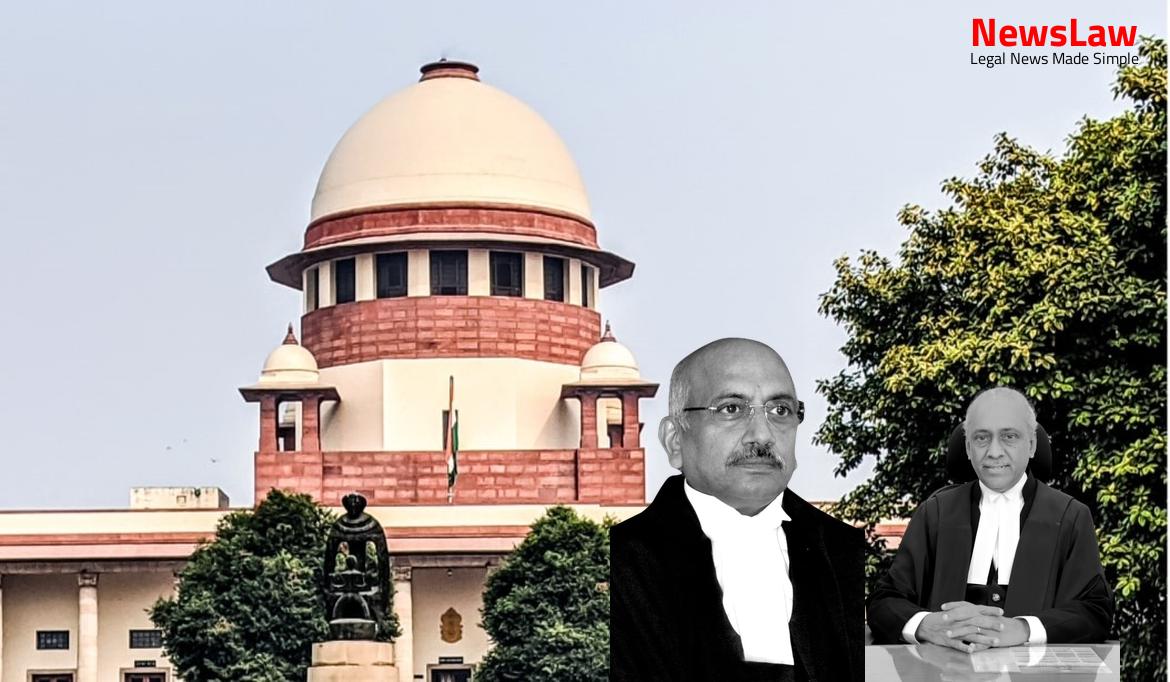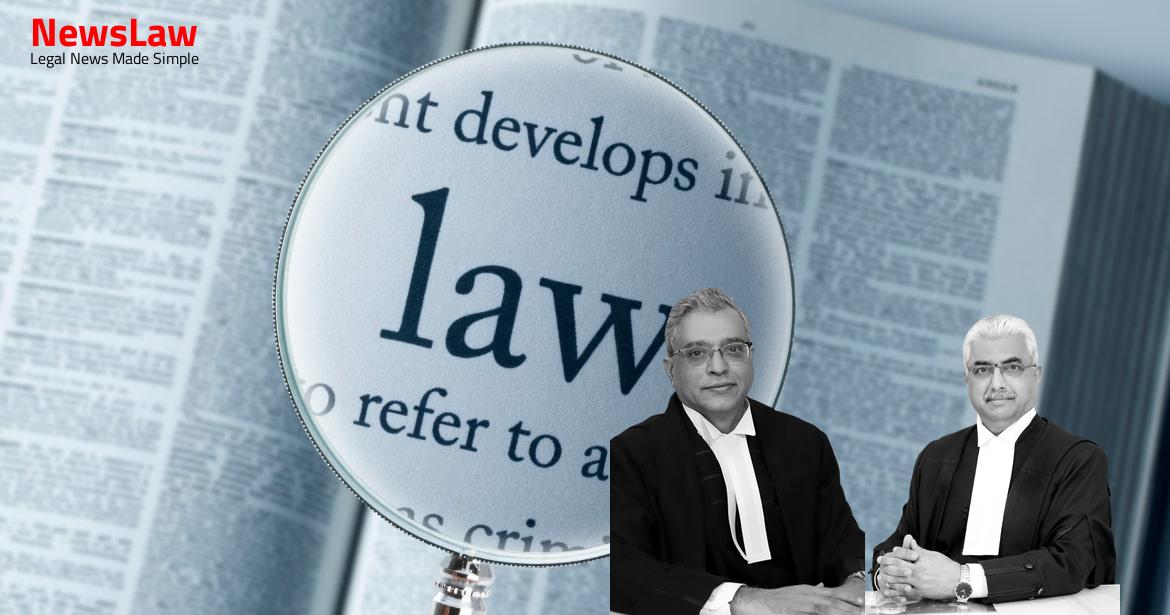Explore the intricate legal analysis conducted by the court regarding Order XXI, Rule 64 in property sale cases. The court’s interpretation of this rule dictates the extent to which properties are sold to satisfy a decree, balancing obligations and discretionary powers. Dive deeper into the complexities of property auctions and the significance of legal precedents in shaping court judgments.
Facts
- An auction sale was held on 30.05.1979, with two brothers named Sachindra Nath Mukherjee and Dulal Kanti Mukherjee being the highest bidders at Rs.5500.
- Multiple rounds of litigation ensued, starting from 1979 and culminating in 1992.
- The judgment-debtor constructed a building on the land post-sale, which was ordered to be demolished.
- A compromise was reached between the judgment-debtor and the auction purchasers in 1980.
- Various petitions, revisions, and applications were filed over the years challenging different orders and decisions.
- Despite repeated attempts and dismissals, the appellants filed a petition in 2006 under Section 47 of the Code citing errors in the auction process.
- A detailed order was passed in 1991, which was upheld by the Court after a special leave petition in 1992.
- The auction sale was deemed effective as the judgment-debtor failed to meet the payment deadline, leading to dismissal of their application.
- A subsequent order in favor of the judgment-debtor sparked further legal action and a revision in 2007, ultimately dismissed in 2008.
- Ms. Rama Rani Devi filed a suit for recovery of money against Sasadhar Biswas in 1971.
- The suit was decreed ex parte on 25.07.1974 directing the defendant to pay Rs. 3000.
- The High Court held that the judgment-debtor did not honor the commitment made in the compromise memo.
- Executing court passed an order rejecting auction purchasers’ application on 11.07.1987, but it was set aside by the High Court in a revision in C.O.No.2487 of 1987.
- High Court allowed the revision and remanded the matter back to the executing court for re-hearing.
- The High Court eventually dismissed the revision petition on 05.09.2001.
- This dismissal was challenged in C.O.No.1276 of 2003 but was also dismissed by the High Court on 11.02.2005.
Also Read: Legal Analysis on Withdrawal from Land Acquisition
Arguments
- Order XXI, Rule 64 is contended by the learned counsel for the appellants to impose an obligation rather than a discretion to sell only enough of the property to satisfy the decree.
- The learned counsel for the appellants cited relevant decisions to support this proposition.
- Further discussion and analysis of these cited decisions will follow.
Also Read: Legal Analysis in Redevelopment Case
Analysis
- Two significant changes were made to Order XXI, Rule 66 by Act 104 of 1976.
- The first proviso under sub rule (2) of Rule 66 gives discretion to the court not to give notice to the judgment-debtor if notice for settling sales terms had been given.
- Objections to inclusion of entire property should have been raised when an order was passed under Order XXI, Rule 54 but were not done so by the judgment-debtor.
- The appellants filed a petition under Section 47 raising jurisdictional error due to non-compliance with Order XXI, Rule 64, despite failing to do so in previous rounds of litigation.
- The judgment-debtor’s first petition under Section 47 was filed in 1975, and the objection regarding Order XXI, Rule 64 was raised for the first time in the fifth round of litigation.
- The sale of immovable property became absolute under Order XXI, Rule 92(1) after specific application processes were disallowed by the court.
- The appeal based on Order XXI, Rule 64 was rejected due to lack of merit.
- The appeal was dismissed with no order as to costs.
- A proclamation for the sale of property must be drawn up with notice to the decree-holder and judgment-debtor.
- The proclamation must specify the time and place of sale and details about the property to be sold.
- If a part of the property is sufficient to satisfy the decree, that part should be specified.
- Details such as revenue assessed, encumbrances, amount for recovery, and other relevant information must be included.
- Notice to the judgment-debtor may not be necessary if given beforehand via a court order unless directed otherwise.
- The court is not required to provide its own estimate of the property’s value in the proclamation.
- Any application for sale must be accompanied by a verified statement containing the required details specified in the proclamation.
- In Ambati Narasayya vs. M. Subha Rao & Anr, it was held that in the case of a large property and a small decree, only a portion of the property sufficient to satisfy the decree should be brought to sale.
- It was emphasized that the number of properties is irrelevant as long as the proceeds are enough to fulfill the decree.
- The decision was influenced by the interpretation that the executing court can only sell properties up to the point where the decree is entirely paid off.
- The sale of 10 acres of land in Ambati Narasayya for Rs.17,000 to settle a claim of Rs.2400 was cited as an example of this principle in action.
Also Read: Interpretation of Amendments in Compassionate Appointment Cases
Case Title: DIPALI BISWAS . Vs. NIRMALENDU MUKHERJEE . (2021 INSC 616)
Case Number: C.A. No.-004557-004557 / 2012



